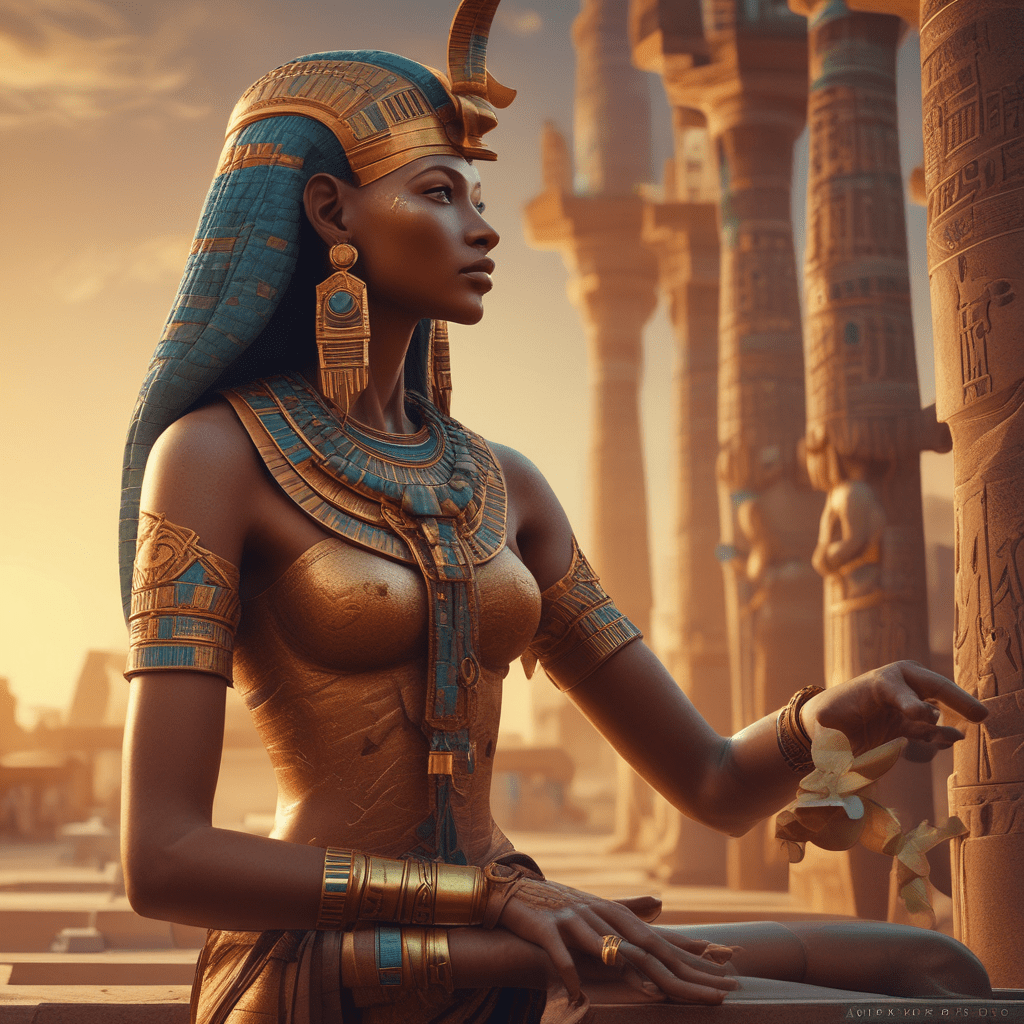The Myth of the Goddess Tefnut in Ancient Egypt
The myth of the goddess Tefnut is an intriguing aspect of Ancient Egyptian mythology. Let’s unravel the story behind this significant goddess.
Who is Goddess Tefnut?
In Ancient Egyptian mythology, Tefnut was considered the goddess of moisture, rain, dew, and water. She is often depicted as a lioness-headed woman or as a lioness. Tefnut is one of the oldest deities in the Egyptian pantheon and played a crucial role in the creation myth.
Role of Tefnut in Egyptian Mythology
Tefnut was believed to be one of the offspring of the creator god Atum-Ra. According to Egyptian myths, Tefnut, along with her brother Shu, were created by Atum-Ra through self-procreation. Tefnut’s association with moisture and water symbolizes the primeval waters from which creation arose.
Symbolism and Representation
The goddess Tefnut embodies concepts of fertility, creation, and sustenance. As the personification of moisture, Tefnut played a vital role in ensuring the fertility of the land and the nourishment of all living beings. Her lioness form symbolizes power, protection, and ferocity.
Legacy and Importance
Tefnut’s presence in Egyptian mythology highlights the significance of water in the desert environment of Ancient Egypt. She was revered for her role in maintaining balance and harmony in the natural world, ensuring the continuity of life through the presence of water and moisture.
FAQ about the Myth of the Goddess Tefnut in Ancient Egypt
Who is Tefnut in Ancient Egyptian mythology?
Tefnut is a prominent goddess in Ancient Egyptian mythology, often depicted as a lioness or as a woman with the head of a lioness. She is associated with moisture, rain, and the waters of chaos.
What is the role of Tefnut in Egyptian mythology?
Tefnut is believed to be one of the original deities in Egyptian mythology, representing the concept of moisture and the primordial waters. She is considered the daughter of the creator god Atum and the sister and consort of Shu, the god of air.
Why is Tefnut important in Egyptian mythology?
Tefnut played a crucial role in Egyptian cosmogony by symbolizing the moisture that was necessary for life and creation. She was revered as a protective deity, ensuring the balance and harmony of the world.
What are some symbols associated with Tefnut?
Tefnut is often depicted with the solar disk and the uraeus, a symbol of kingship and protection. She is sometimes shown carrying the ankh, representing life, and the was-scepter, symbolizing power and dominion.
How does Tefnut’s mythology contribute to our understanding of Ancient Egyptian beliefs?
The mythology surrounding





